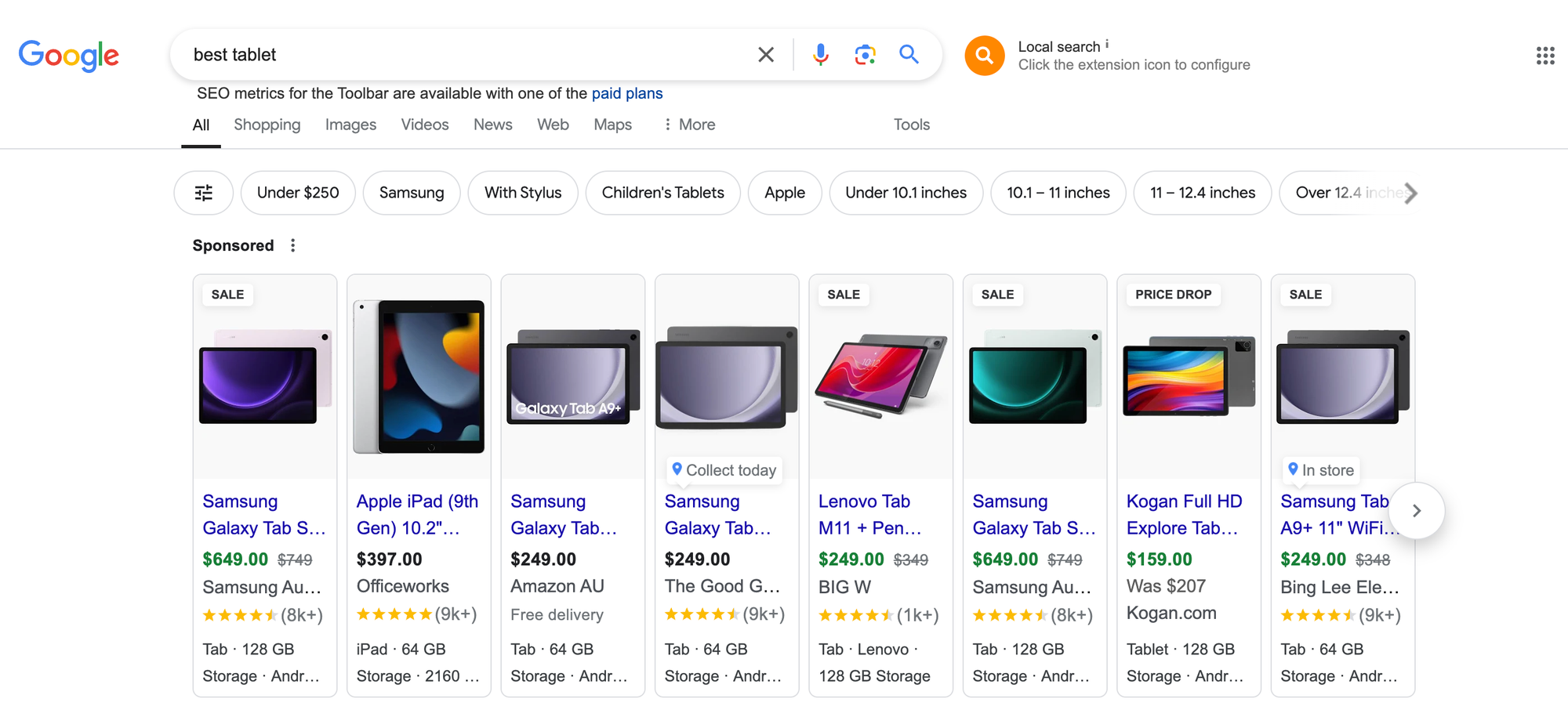BTTR Roundup #17: A tough week in tech - Social media bans and Google abuse
It's been a week.

Friends, let me tell you that this week was an all you can eat buffet of frustration and disappointment. I don't want to come into your inbox or web browser and contribute to the decline of your emotional wellbeing, but I need to talk through some of this stuff.
At the top of my list of frustrations is the federal government's decision to push ahead with its misguided social media ban for under 16s.
I addressed many of the concerns with this policy a couple of weeks ago, and there's a bit more information out there now (though funnily enough, concerns still haven't been addressed).
The biggest red flag for the whole thing - which has been pointed out by the excellent work of Cameron Wilson at Crikey - is that pretty much every source used to justify the ban is based off a misguided interpretation of data from a single study on the impacts of social media on teenagers.
The government referenced the study in its documentation while also referring to the US surgeon general, which itself is based on a misunderstanding of the same data. But the thing that kicked off the whole debate was the South Australian Premier's reading of the book The Anxious Generation by Jon Haidt, which itself misinterpreted the same data.
How do we know that they all got it wrong? Because the researchers who did the study said so.
here's the kicker: you know who else misinterpreted the only study cited by the government for the <16yo social media ban? Jon Haidt, whose book has inspired the global push to ban kids from social media and who met with SA Premier (according to the study co-author @shuhbillskee.bsky.social)
— CAMERON WILSON (@cameronwilson.bsky.social) 2024-11-21T04:42:05.922Z
Of course, even in light of this information, the Government is ploughing ahead with the legislation. BTTR is not a place for politics, but when both major parties agree on something, it's rarely a good thing.

Google appoints itself the arbiter of media business decisions
This week Google decided to roll out its crackdown on "site reputation abuse". It sounds reasonable enough – targeting businesses that let external parties leverage their brand's domain strength to rank highly for commercial keywords.
Google tackling this problem initially started earlier this year, and mostly took aim at publishers that used white-label coupon code sites as an extra revenue stream.
Initially it was described as targeting sites that had little to no first-hand involvement with the content being produced on those sections of a site.
In its documentation, Google even calls out that specific example:
A news site hosting coupons provided by a third-party where the main reason for publishing the coupons on the news site is to capitalize on the news site's reputation
Here's the thing, though. The "main reason" for publishing coupons on the news site isn't "to capitalise on the news site's reputation". It's to make revenue. News sites used to be able to make enough money from advertising, but Google and Meta came in and took most of that revenue. So news sites adapted.
Now don't get me wrong - there is very little benefit to readers by news companies hosting coupon codes. I led the team at Finder for several years that looked after deals and coupon codes, and I can say with confidence that nine times out of 10, the coupons on offer on these sites were either generic rubbish or no longer valid.
But Google's update to its site reputation abuse policy this week targets an area I'm emotionally attached to: product reviews.
Google has decided to crack down hard this week (as Black Friday sales begin, no less), adjusting its language to make it clear that it doesn't matter if there is first party involvement in this content. And it has begun enforcing the policy with manual spam actions against websites like Forbes Advisor, WSJ Buyside and CNN Underscored.
Huge heads-up! Manual actions for 'Site reputation abuse' have already started going out based on the policy update. Jason Kilgore pinged me on LinkedIn about this. So I checked CNN Underscored, WSJ Buyside, and others. Gone. Here is one of the manual actions just applied (not a site mentioned) #seo
— Glenn Gabe (@glenngabe.bsky.social) 2024-11-20T13:53:03.032Z
Let me perfectly clear right now: I don't believe that these sites should dominate search results. Forbes in particular has had a tendency to appear at the top of review queries for me in Australia, and I don't feel like the editorial approach it has taken warrants that position.
I'd also argue that Google's own guidelines should exclude this type of content from inclusion. In its examples of what is not considered site reputation abuse, it states:
Columns, opinion pieces, articles, and other work of an editorial nature
As someone who has been reviewing tech for over 20 years, let me tell you – product reviews are opinion pieces. They are 100% editorial.
Google's algorithm for reviews - particularly in the past couple of years - has been far too heavily weighted towards larger brands. The helpful content update killed off dozens of independents in favour of bigger brands, and now Google is trying to solve that issue by just calling the content "spam".
I firmly believe that manually penalising media companies for looking to diversify revenue streams is an abusive solution to the problem.
These businesses have looked to product reviews as an additional revenue stream, which was quite lucrative for a number of years there. A lot of this affiliate content was quite rubbish, but a lot of it is actually really well done and helpful.
Looking at CNN Underscored specifically, take a look at the iPhone 16 review. It's good! Is it the best iPhone 16 review? Probably not! Does it deserve to be wiped from Google search results because it isn't "news" like CNN normally produces? Absolutely not.
Instead of flagging these manual actions (which seem to disproportionately impact media companies from what I've seen), Google should be trying to actually fix its algorithm. It should be looking for better ways to surface the best content rather than the results from the biggest brands (and Reddit).
Because if Google took a moment to look at itself, it would notice another brand that has diversified its strategy well outside of its usual area of expertise.

It would be a shame if Google started manually censuring its own search results for the shithouse shopping results it pushes into the top of review queries, wouldn't it?
Black Friday sales are here
I initially built BTTR as a product review site geared towards affiliate marketing of the products I reviewed and the best deals on those products. But Google killed off that business plan (yah, I'm still bitter).
I've still rounded up some of the bigger Black Friday deals I've seen so far, but I'm not diving deeper than that.

This week's reviews
It was a productive review week this week. Four additional reviews this week takes me to a total of 87 published reviews on the site in 2024. I know it's silly, but I desperately want to hit 100 before 2025 arrives.
Samsung Galaxy Tab S10 Ultra

EcoFlow Delta Pro 3

Sonos Arc Ultra

Sonos Sub 4

Thanks for reading
That's it for this week's roundup for free BTTR members. If you upgrade to the paid tier (just $10 a month), you'll get access to the rest of this week's newsletter, which includes:
- A roundup of the best tech news of the week (with occasional commentary from yours truly)
- A preview of next week's product reviews
- A bit of a preview into some of my plans for BTTR next year
As always, I'd love to hear your thoughts on this week's newsletter, or even some input on what you'd like to see in next week's roundup.
Until next week
Nick @ BTTR









